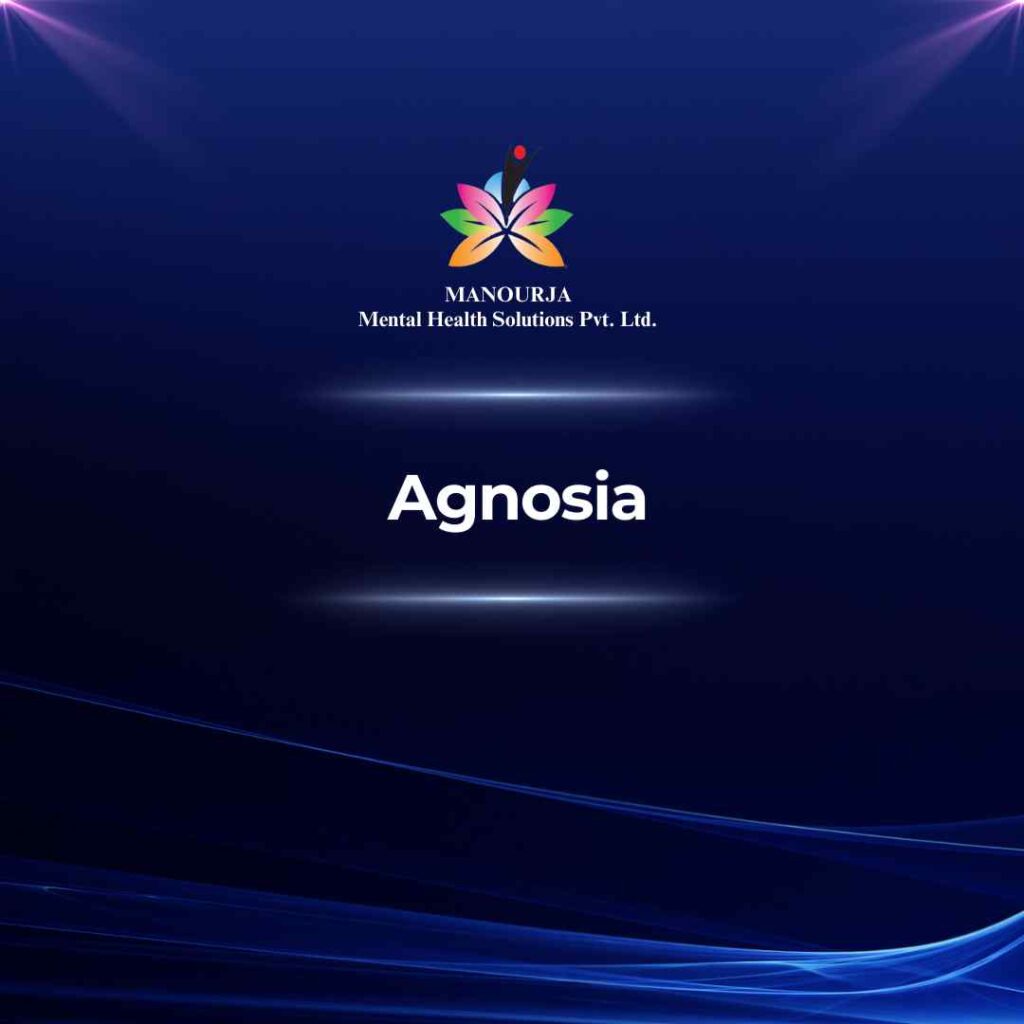Agnosia

Agnosia is a neurological condition characterized by the inability to recognize and identify objects, people, sounds, shapes, or smells despite having intact sensory functions. This means that even though the sensory organs (like eyes or ears) are working correctly, the brain cannot process the information properly to identify what is being sensed.
Agnosia as a Sign and Symptom of Mental Illness
Agnosia is not typically a primary symptom of mental illnesses but rather a symptom of neurological damage or conditions affecting brain function. It can be a significant sign indicating that something is wrong with the brain’s processing capabilities. There are different types of agnosia, each affecting a different sense:
- Visual Agnosia: Inability to identify objects by sight.
- Auditory Agnosia: Inability to recognize sounds, including spoken words.
- Tactile Agnosia (Astereognosis): Inability to recognize objects by touch.
- Prosopagnosia: Inability to recognize familiar faces.
- Anosognosia: Lack of awareness or denial of a neurological condition or deficit.
Mental Illnesses and Conditions Associated with Agnosia
While agnosia is more commonly linked to neurological conditions, it can be associated with mental health issues in cases where these conditions overlap with neurological problems. Here are some conditions in which agnosia might present:
Alzheimer’s Disease and Other Forms of Dementia:
- Individuals may develop visual agnosia and other types as the disease progresses, affecting their ability to recognize familiar objects, faces, or places.
Stroke:
- A stroke, especially one that affects the brain’s occipital or parietal lobes, can result in various forms of agnosia, depending on the affected brain area.
Traumatic Brain Injury (TBI):
- Injuries to specific parts of the brain can lead to agnosia, impacting the ability to process sensory information correctly.
Brain Tumors:
- Tumors in the brain, depending on their location, can cause agnosia by disrupting normal brain function.
Multiple Sclerosis (MS):
- As MS progresses and causes more neurological damage, it can lead to symptoms including agnosia.
- This type of dementia can cause visual hallucinations and visual agnosia due to its impact on brain regions involved in processing sensory information.
Psychotic Disorders (in Rare Cases):
- Severe cases of psychotic disorders, like schizophrenia, might involve symptoms that resemble agnosia, though this is extremely rare and usually indicates a complex interplay of neurological and psychiatric factors.
Understanding agnosia and its association with these conditions is essential for accurate diagnosis and appropriate treatment. Management strategies often involve rehabilitation therapy, cognitive training, and supportive care to help individuals cope with their symptoms and improve their quality of life.
At MANOURJA, we believe in the transformative power of counseling. Our experienced therapists offer a safe and supportive space where you can explore your thoughts, emotions, and challenges. Through personalized counselling sessions, we’ll work together to develop coping strategies, build resilience, and achieve lasting positive change. Discover the path to a healthier, happier you with MANOURJA counselling services.
MANOURJA Rehabilitation Services
At MANOURJA, we’re dedicated to helping you in rebuild your life, after difficult times. Our rehabilitation services focus on understanding what you need to move forward, whether you’re recovering from addiction, trauma, or any psychological – social challenges. We create personalized plans, that are all about helping you, regain your strength and find hope again. With a caring team by your side, you’ll have the support to make real progress and take steps toward a brighter, healthier future.
